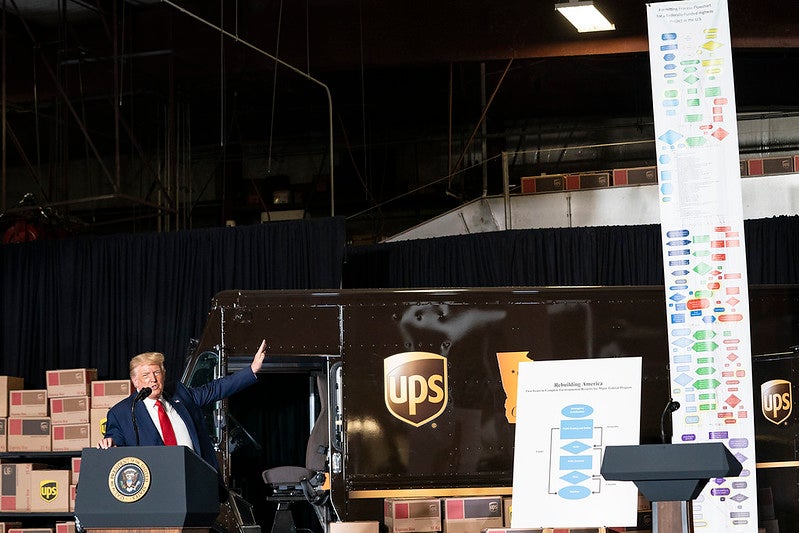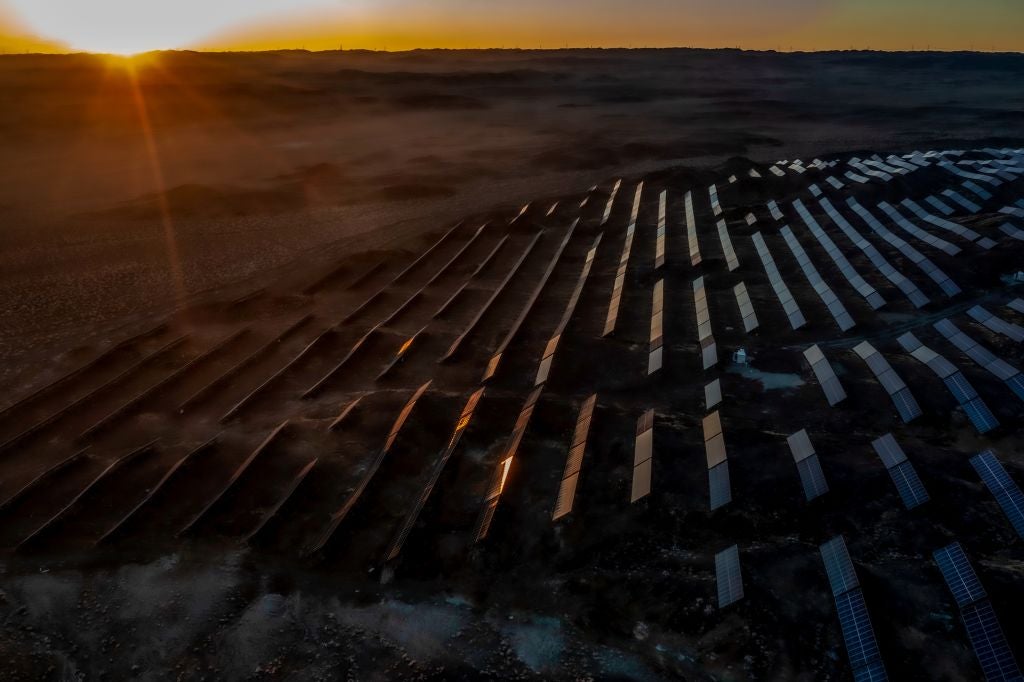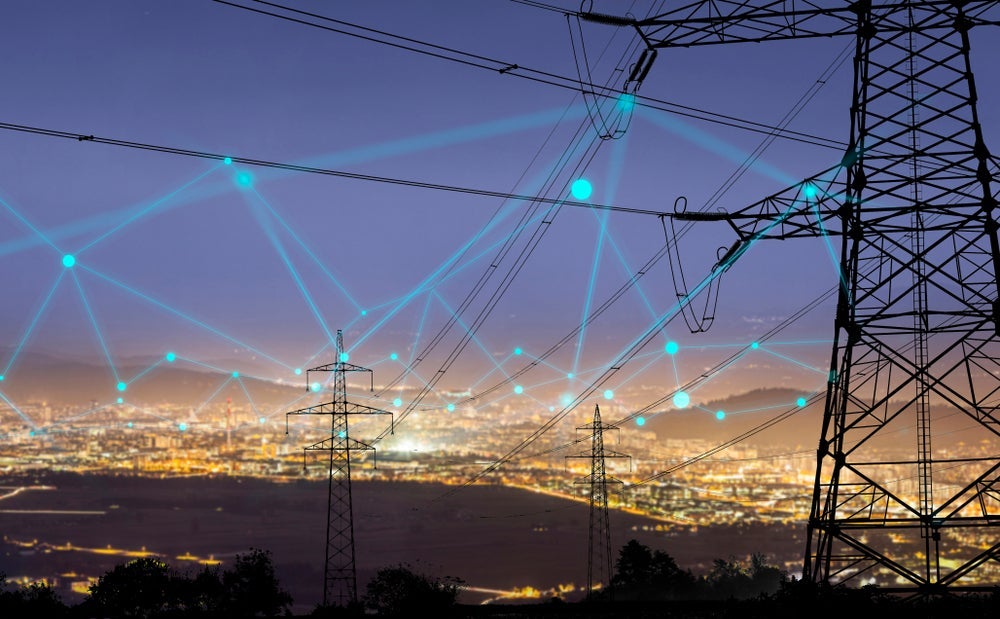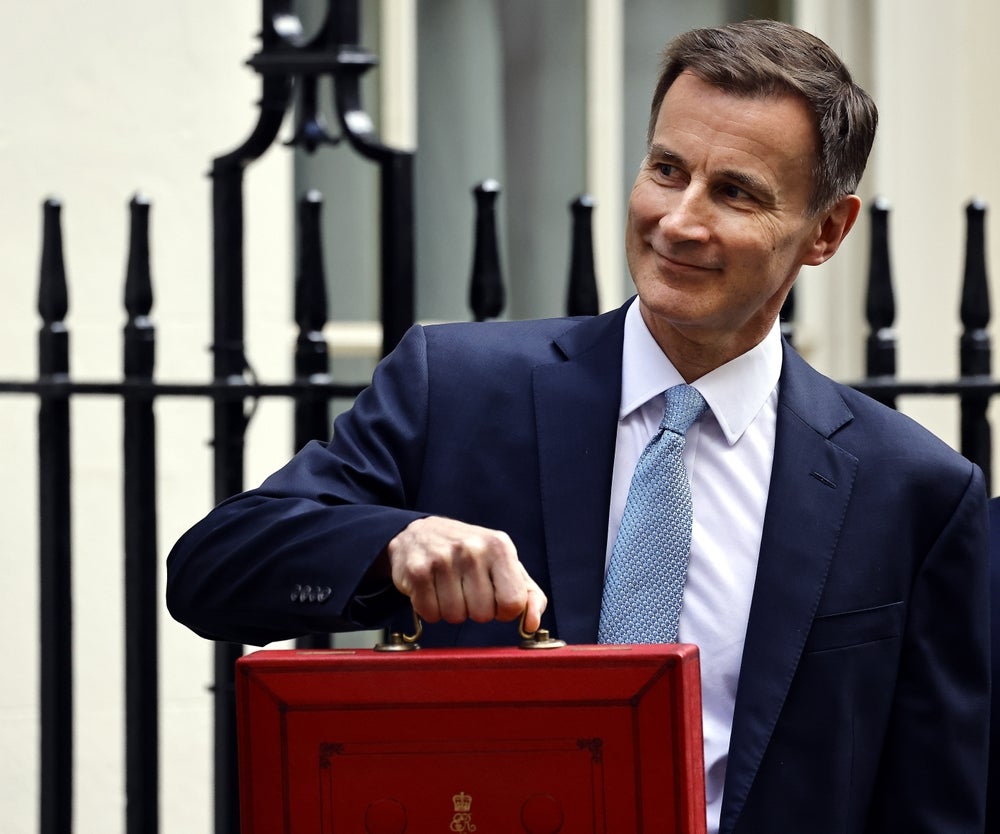
Today US President Donald Trump announced changes to legislation that would lessen oversight of new US energy projects.
Specifically, his changes to the National Environmental Policy Act limit environmental assessments around new projects. This would ease regulation surrounding the construction of pipelines, power plants and large infrastructure projects from when the rule is enacted.
The White House announcement said the previous environmental review process was “burdensome for both federal agencies and Americans seeking permits”.
It claims federal agencies take four and a half years on average to compile environmental impact statements.
The new rule establishes time limits for these assessments. Wider environmental impact assessments will take no longer than one year, and environmental impact statements will finish within two years.
Moreover, new projects will not need to examine their “cumulative effects”, effectively meaning they will not examine potential impacts on climate change.
How well do you really know your competitors?
Access the most comprehensive Company Profiles on the market, powered by GlobalData. Save hours of research. Gain competitive edge.

Thank you!
Your download email will arrive shortly
Not ready to buy yet? Download a free sample
We are confident about the unique quality of our Company Profiles. However, we want you to make the most beneficial decision for your business, so we offer a free sample that you can download by submitting the below form
By GlobalDataWhy is Trump cutting environmental regulation?
Trump aims to cut “red tape” surrounding project planning, but organisations such as the Centre for American Progress and Greenpeace have criticised the change.
Pipeline builders will find the legislation changes reassuring and oil trade bodies have already supported the move. Last week, the Dakota Access pipeline was shut down after three years of pumping because it does not have adequate environmental assessments. Furthermore, the country’s highest court blocked construction on the Keystone XL pipeline, planned to connect the US and Canada. The court upheld a previous decision to require individual permits for water crossings.
The Trump administration had sought to push the pipeline towards construction despite ongoing environmental protests. The US judicial system has blocked several of Trump’s policy changes on legal grounds. Christy Goldfuss of the Centre for American Progress policy institute: “These new regulations couldn’t be farther from the original purpose, and they are unlikely to stand up in court.”
In a speech at a package delivery hub in Atlanta, Trump said the changes were part of his policy of “slashing the web of needless bureaucracy that is holding back our citizens”.
How long could these changes last?
The reforms alter a 50-year-old piece of legislation, after a multi-year review process. The changes have taken effect now, though their future depends on US courts and voters.
The US election is currently scheduled for November. If Donald Trump wins a second term, he would likely continue his “historic deregulation”, as the White House describes it.
However, opposing candidate Joe Biden has taken a very different stance. Earlier this week, he announced he would spend more than $2tn on green power infrastructure across four years.
This would include incentives for American car manufacturers to produce electric vehicles. Energy-efficient home improvements would also receive funding.
This spending would form part of Biden’s plan to eliminate carbon emissions from power industries by 2035. While he originally planned a slower timeframe, the 2035 target was a popular policy with other candidates hoping to challenge Trump.
Beyond this, his campaign has not officially given significant details of how the money would be spent or sourced. Associated Press reported they would come from taxes on corporations and wealthy individuals.
Polls currently expect Donald Trump to lose the upcoming US election.







